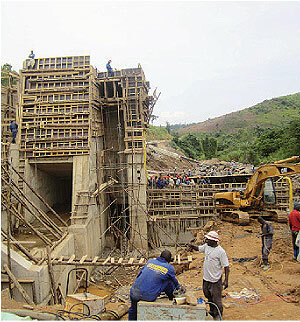Reliable, affordable energy the engine for industrial growth-Africa Industrial Supplement
Uganda is endowed with natural resources and a climate favourable for economic development. This offers great optimism to the country in terms of industry and investment that can spur economic growth.
By Joyce Nyakato
Uganda is endowed with natural resources and a climate favourable for economic development. This offers great optimism to the country in terms of industry and investment that can spur economic growth.
Uganda Baati in Industrial Area, Kampala producing versatile sheets. Through
industrialisation, poverty can be reduced.
Africa Industrialisation Day, commemorated on November 20 each year is used to mobilise the commitment of the international community to the industrialisation of Africa. It is a time when governments and other organisations in many African countries examine ways to stimulate their industries.
This year’s day will be celebrated today at the Uganda Industrial Research Institute (UIRI) Campus in Kampala. Various events have been planned which include public awareness campaigns and an exhibition by members of the private sector and researchers.
This year’s commemoration of Africa Industrialisation Day puts in the spotlight the challenge of “Sustainable energy for accelerated industrial development.” The aim is to ensure access to reliable, efficient and affordable energy as a key element in creating decent jobs and increasing productive capacity.
As per the national industrial policy framework, over the past decade, Uganda’s economic growth performance has averaged a 6.9% per year. This is above the sub-Saharan average of 2.4%. In the same period the contribution of industry to GDP growth rose from 1.5% in 2001/2002 to 2.1% in 2004/5, but declined to 0.9% in 2005/6. This undesirable decline is largely attributed to power shortages.
Energy reduces poverty by boosting poor people’s productivity and thus their income. In modern times, no country has managed to substantially reduce poverty without greatly increasing its level of industrialisation which in turn is driven by the use of energy.
“In Uganda power is not adequate for the industrial sector,” says Eng. Francis Odong Gimoro a principal engineer at the Ministry of Trade, Industry and Co-operatives.
There is no question about the benefits of energy, however, bringing modern energy services to the poor is an enormous challenge, which needs to be assessed technically, economically and financially.
“Furthermore, according to a ministry statement, the environmental impacts of conventional energy and traditional fuels are unsustainable at both local and global levels.
Industrial growth has been a high priority since the 1980s. The Government’s initial goal was to decrease Uganda’s dependence on imported manufactured goods by rehabilitating existing enterprises. These efforts were greeted with success when industrial output grew by more than 25% in the early 90s with much of this increase in the manufacturing sector.
When the industrial sector grew, there was also more demand for energy to drive those machines.
“Industrialisation is a process that requires several inputs and energy is one of them,” says Dr. Dick M. Kamugasha, director, Technology Development Centre at the Uganda Industrial Research Institute.
To explain his point, he lists an example of China, a highly industrialised nation with cheap electricity costs. As a result most of the industries operate on limited costs. With more energy at one’s disposal, productivity is automatically doubled.
The Government has made it a priority to boost the energy sector. To reduce the energy crisis, the Government is commissioning the Bujagali hydropower plant which will increase the production of power in the country.
However, a lot of things have to be put into account. The energy requirement of the country in 2011 will not be the same in 2020. At the time, Owen Falls dam was built, it was serving a population of 3 million, which has now grown to 33 million necessitating load shedding.
Kamugasha advises industries to devise innovations that would not only increase their efficiency, but also relieve the energy burden in the country. The sugar industry has devised means of producing its own power from sugar bagasse in order to reduce the operations cost.

A small hydro power station under construction at Nyagak in
Zombo. When connected it will serve the West Nile region.
Similarly, Kamugasha stresses the importance of a countrywide behavioural change in terms of energy consumption.
“Unnecessary consumption results into load shedding,” he says. If the entire public made a collective effort to save energy by changing their attitude in the way they consume electricity, they can be able to save loads of energy.
In addition to energy, there is need for other components like infrastructure and appropriate technologies which affect industrial growth.
The country still ranks poorly on the quality of ports, rail and road development. For an industry to stand and flourish there needs to be a balance between the technological, energy and infrastructural input. Facilities need repairs and improved maintenance.
Skilled workers and people with management experience, like engineers and technicians, in particular, are in demand. Therefore the Government has embarked training manpower for industrial purposes.